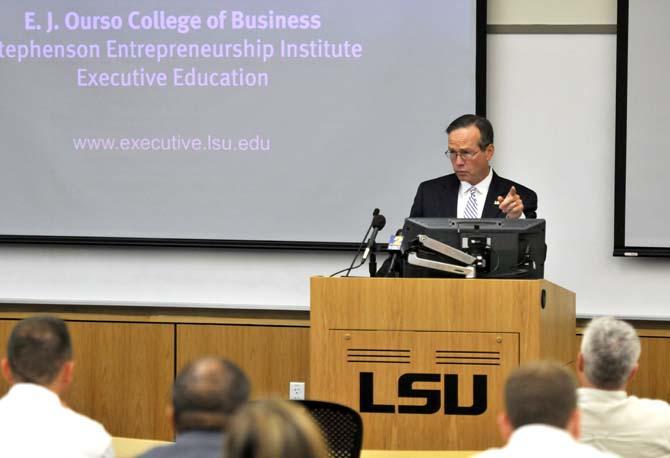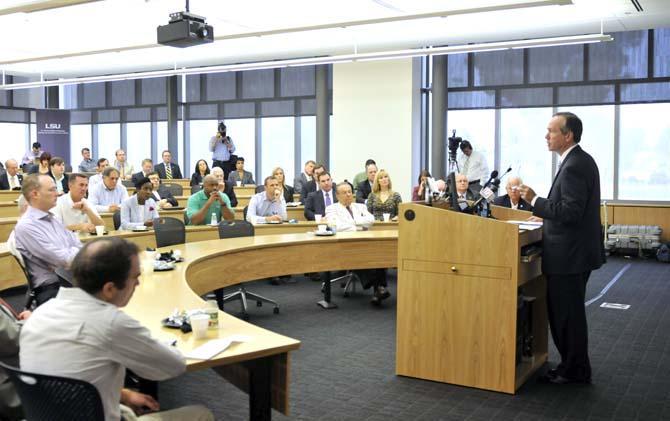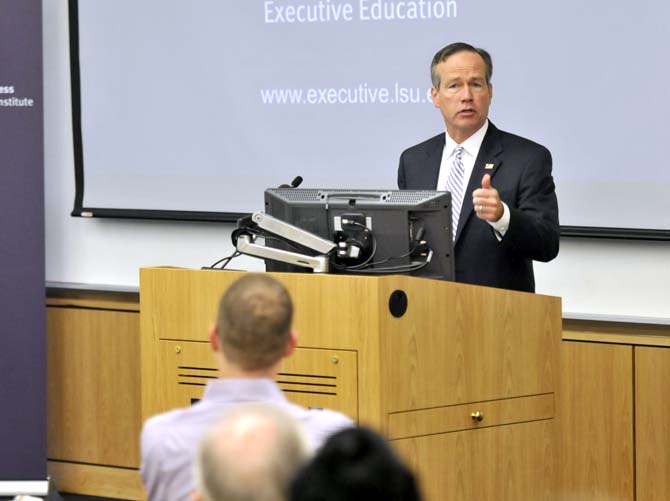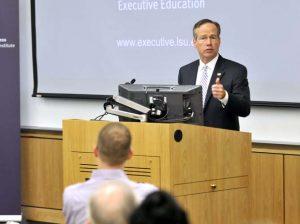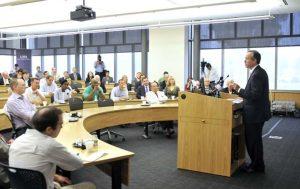LSU President F. King Alexander addressed the University’s nation status among other topics Tuesday Morning at the University Executive Education’s Breakfast to Business series.
Alexander cited a study that ranked the University 33rd out of more than 160 research schools nationwide for mid-career earnings — the salary a graduate will make between ages 42 to 45.
“LSU ranks 33rd and Alabama ranks 79th in mid- career earnings,” Alexander said. “Florida’s mid-career earnings are less than LSU.”
USC Chapel Hill, Wisconsin, Iowa, Michigan State, Ohio State and Penn State mid-career earner graduates also earn less than LSU graduates, according to Alexander.
Alexander went on to point out that the University has a high return on investment due to low tuition and high earnings later on.
“This fallacy that [higher] cost has something to do with quality education experience is perhaps the biggest fallacy in American higher education,” Alexander said.
However, when asked about possible methods of fundraising for the University if tuition would increase, Alexander responded it would be balanced.
“I think it would balance tuition,” Alexander said. “The question is where is tuition going … on the face of it, we’re about $2,500 below the national average. We’re $2,200 below the southern average. The question is: Where do we fall in this equation today?”
Alexander also said higher education has never been needed more than right now, not only for students but also for society as a whole.
He discussed the earning power of getting a degree and the versatility it can provide given that, statistically, a student will have at least five different jobs throughout his or her lifetime.
He also said that college benefits more than just students and graduates.
“This concept that college is an individual benefit and an individual benefit only … excludes all the societal benefits … all economic studies since the early ’60s when Gary Becker and Theodore Schultz won a Nobel Prize for proving that societal benefits accrue to everybody else at a 12 percent rate,” Alexander said.
Alexander also mentioned reaching out to groups of nontraditional students such as veterans.
“We’ve got populations we’re being asked to reach that we’ve never been asked to reach before,” Alexander said. “The veterans’ programs are coming back, and in interacting with about 500 veterans on my previous campus, I can say honestly they didn’t join the Navy to see the world. They joined the Navy to go to college.”
He said a program has been implemented that allows military members to begin taking classes after boot camp to begin building up class credit quickly.
Alexander talks University mid-career earnings
July 24, 2013
LSU President F. King Alexander speaks at Breakfast to Business Tuesday, July 23, 2013 in the Business Education Complex.
More to Discover



